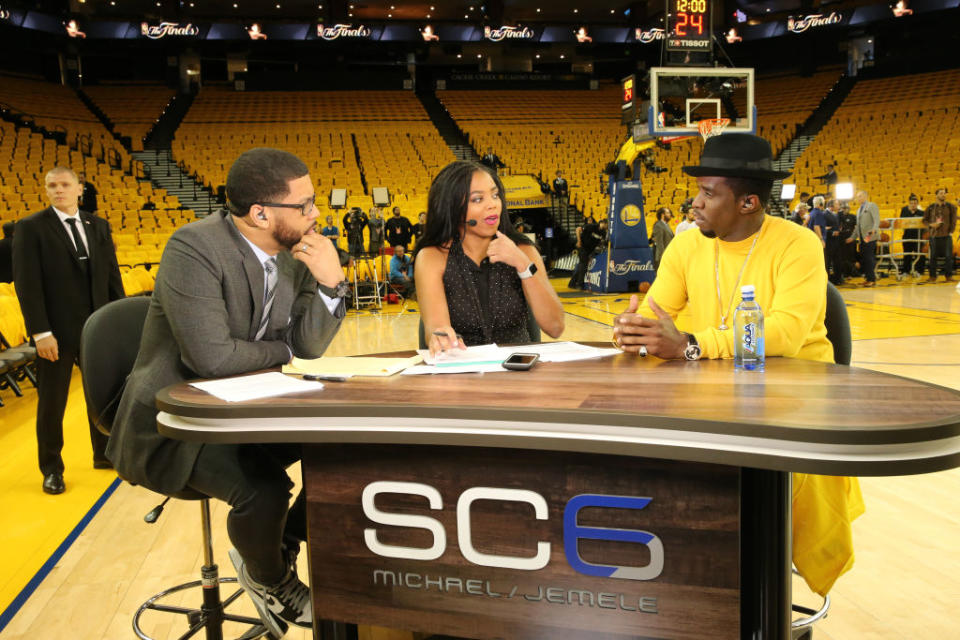ESPN has confirmed its bias
In its handling so far of the Jemele Hill situation, ESPN has confirmed its bias. Call it liberal, call it whatever you want, but this much is clear: if ESPN agrees with your political commentary, you’re OK. If ESPN does not agree with your political commentary, you’re not OK.
At least that’s the only thing to infer from ESPN’s response so far.
Before you scroll down to comment, take a few minutes to consider …
The Curt Schilling comparison: Schilling was fired after what ESPN determined to be an inappropriate post on social media. ESPN has determined Hill’s tweet Monday about President Trump to be inappropriate. Schilling had previously been suspended for another social media post ESPN determined to be “unacceptable.” Hill has previously been suspended as well by ESPN, back in 2008, for invoking Hitler in a column about the Boston Celtics.
So first suspension, then firing. If that’s ESPN’s policy, so be it.
Except so far ESPN has done nothing to Hill aside from a feather-tap on the wrist for what is a blatant violation of its own policies (which we’ll get to). She has not been removed from her hosting duties on “SportsCenter,” not even for a day, and if ESPN’s statement about Hill’s comments – that President Trump is a “white supremacist” – was meant as a reprimand, well, that’s laughable:
ESPN Statement on Jemele Hill: pic.twitter.com/3kfexjx9zQ
— ESPN PR (@ESPNPR) September 12, 2017
ESPN’s policy on “Political and Social Issues”: When it comes to political speech, media members are, appropriately so, held to a higher standard, which is why a media outlet such as ESPN has guidelines outlining what is and isn’t appropriate. It’s here where ESPN has some explaining to do.

In reading ESPN’s own policies on employees commenting on politics, which was issued in April, Hill is in clear violation, and not by a little.
• “Writers, reporters, producers and editors directly involved in ‘hard’ news reporting, investigative or enterprise assignments and related coverage should refrain in any public-facing forum from taking positions on political or social issues, candidates or office holders.”
Does Jemele Hill’s platform as host of ESPN’s flagship news program not fall under “hard” news reporting? Or does she somehow slip through this crack?
Even if she doesn’t fall under that umbrella, there’s this:
• “Commentaries on relevant sports-related issues are appropriate, but we should refrain from overt partisanship or endorsement of particular candidates, politicians or political parties.”
(It should be noted the bold emphasis above is ESPN’s, not mine.)
None of Hill’s tweets had relevancy to any “sports-related issues.”
• “The presentation should be thoughtful and respectful. We should offer balance or recognize opposing views, as warranted. We should avoid personal attacks and inflammatory rhetoric.”
As this relates to Hill’s tweets: violation, violation, violation.
Do these policies ESPN has set forth apply to Twitter?
“These guidelines act in concert with all ESPN standards & practices, including those governing social media and commentary, and apply on ESPN, Twitter, Facebook and other media.”
So yeah.
Look, I’m not advocating Hill be fired or suspended. ESPN’s the one that got that ball rolling when it canned Schilling, which is its prerogative. The network even gave itself some leeway by not attaching any set punishment for violating its own rules, allowing itself the ability to make disciplinary decisions arbitrarily … which it took full advantage of here.
If ESPN says, “Yes, you have the freedom to say what you want,” fine. If they say, “No, you don’t have the freedom to say want you want,” that’s fine, too. But if it’s going to say, “Hey, she has the freedom to say what she wants but you don’t,” then by ESPN’s own actions it’s telling us where it stands, which in this case is politically left.
Whether it sees that as a problem is up to ESPN, just as it’s up to you. Me, I see it as totalitarian.


